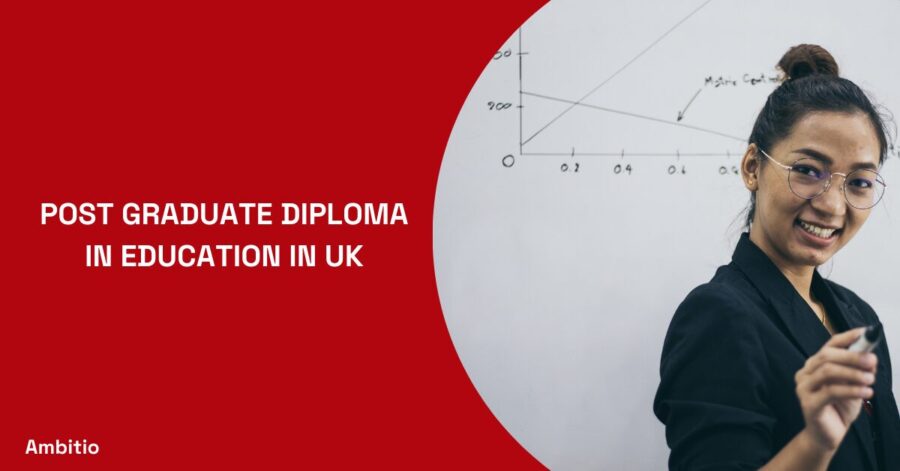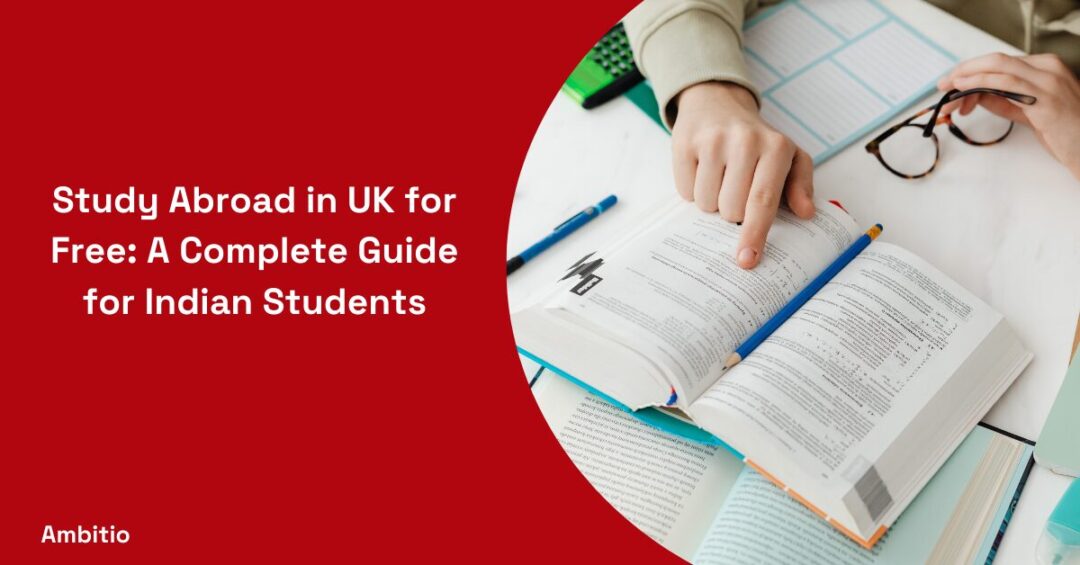14 December 2024
6 minutes read
Postgraduate Diploma in Education in the UK: Your Path to Becoming a Qualified Teacher

Introduction
Are you passionate about teaching and aspire to become a qualified educator? Pursuing a Postgraduate Diploma in Education (PGDE) in the UK might be the ideal path for you. In this comprehensive guide, we’ll delve into the key aspects of PGDE programs, entry requirements, and what you can expect from this educational journey.
Understanding the PGDE Program
What is a PGDE?
A Postgraduate Diploma in Education (PGDE) is a prestigious qualification that opens the doors to a fulfilling career in teaching. This program is specifically designed to prepare individuals for the demands of the teaching profession. PGDE programs are offered by universities and education institutions across the UK and are recognized for their high standards.
A PGDE program typically spans one academic year when pursued full-time. It combines both theoretical knowledge and practical teaching experience to equip aspiring teachers with the necessary skills and qualifications. The program focuses on developing your teaching techniques, classroom management, and subject-specific knowledge.
Benefits of Pursuing a PGDE
Opting for a PGDE offers several advantages for individuals who want to become qualified teachers. Some of the key benefits include:
- Qualified Teacher Status (QTS): Successful completion of a PGDE program leads to QTS, which is essential for teaching in the UK. It’s a recognized certification that validates your competence as a teacher.
- Practical Experience: PGDE programs include school placements, allowing you to gain hands-on experience in real classroom settings. This practical exposure is invaluable in building your teaching skills.
- Subject Specialization: Many PGDE programs allow you to specialize in specific subject areas, such as math, science, or languages. This specialization enhances your expertise and makes you a more attractive candidate to schools.
- Career Opportunities: With QTS in hand, you’ll have a wide range of career opportunities in both primary and secondary education. Teaching is a rewarding profession, and PGDE graduates are in high demand.
The Structure of PGDE Programs
PGDE programs are structured to provide a holistic teacher education experience. Here’s an overview of what you can expect:
- Academic Modules: The program includes a series of academic modules covering topics like teaching methods, curriculum development, educational psychology, and assessment strategies.
- School Placements: A significant portion of your PGDE journey involves school placements. These placements allow you to apply the knowledge gained in the classroom to real teaching situations. You’ll be mentored by experienced teachers, give you valuable insights into the profession.
- Assessments: Throughout the program, you’ll be assessed through a combination of assignments, examinations, and observations of your teaching practice.
- Specialization Options: Some PGDE programs offer the opportunity to specialize in two subject areas, making you well-equipped to teach a broader range of subjects.
In the following sections, we’ll delve deeper into key aspects of PGDE programs, including entry requirements, international student considerations, and FAQs.
Entry Requirements and Eligibility
Prerequisites for PGDE
Before embarking on your PGDE journey in the UK, it’s crucial to understand the entry requirements and eligibility criteria. Meeting these prerequisites ensures that you are well-prepared to excel in the program and ultimately become a qualified teacher.
- Relevant Bachelor’s Degree: The primary academic requirement for most PGDE programs is a relevant bachelor’s degree or an equivalent qualification. The relevance of your degree can vary depending on the program you choose. For example, if you plan to specialize in teaching science, your bachelor’s degree should ideally be in a related field like biology, chemistry, or physics. Similarly, if you aim to teach languages, a degree in linguistics or a language-related field may be preferred. Admissions teams will assess the compatibility of your degree with your chosen specialization.
- English Language Proficiency: Proficiency in the English language is essential for success in a PGDE program. If English is not your first language, you may need to meet specific language proficiency requirements. The International English Language Testing System (IELTS) score is commonly used to assess the language skills of international applicants. While the exact IELTS score required can vary between universities and programs, a score of 6.5 or higher is often a common benchmark. Some institutions may accept other language proficiency tests, so it’s essential to verify the specific requirements of your chosen program.
- GCSE Qualification: In certain cases, you may be required to pass the Graduate Certificate in Education (GCSE) with subject knowledge in areas like math and English. This requirement aims to ensure that PGDE candidates have a solid foundation in fundamental subjects, as these are essential for effective teaching in primary and secondary schools.
- References and Personal Statement: Universities often request references and a personal statement as part of the application process. Your personal statement should reflect your passion for teaching, relevant experiences, and reasons for pursuing a PGDE. Strong references from academic or professional sources can further strengthen your application.
- Interview: Some PGDE programs may require candidates to attend an interview as part of the selection process. During the interview, you may be asked about your motivation for teaching, your understanding of the teaching profession, and your suitability for the program.
It’s important to note that entry requirements can vary between universities and even among different PGDE programs within the same institution. Therefore, it’s advisable to carefully review the specific admission criteria for the program you intend to apply to. Additionally, application deadlines and procedures may differ, so be sure to submit your application well in advance to secure your place in the program.
Navigating the PGDE Journey
What to Expect During Your PGDE
Embarking on a PGDE journey is an exciting endeavor. Here’s what you can anticipate during your time in the program:
- Theoretical Learning: You’ll engage in classroom-based learning where you’ll gain knowledge in educational theories, teaching methods, and pedagogy.
- Practical Teaching Experience: School placements will be a significant part of your PGDE experience. You’ll spend time in real classrooms, applying what you’ve learned and honing your teaching skills.
- Assessments and Evaluation: Throughout the program, you’ll be assessed through a combination of written assignments, examinations, and observations of your teaching practice. These assessments are designed to ensure your readiness for the teaching profession.
- Specialization Opportunities: Some PGDE programs allow you to specialize in specific subject areas. This specialization can be a valuable asset in your future teaching career.
Life as a PGDE Student
Being a PGDE student is not just about academics; it’s also about personal growth and building connections. Here are some aspects of student life you can look forward to:
- Networking: You’ll have the opportunity to network with fellow PGDE students, experienced educators, and education professionals. These connections can be invaluable for your career.
- Supportive Community: Most universities offer support services to help PGDE students succeed academically and personally. Don’t hesitate to seek assistance when needed.
- Extracurricular Activities: Universities often have a range of extracurricular activities and clubs that can help you unwind and make the most of your student life.
Conclusion
A Postgraduate Diploma in Education (PGDE) in the UK is a valuable qualification for those looking to pursue a career in teaching. With a focus on practical experience, specialized subject knowledge, and the opportunity to gain Qualified Teacher Status, it’s a rewarding path for aspiring educators.
If you’re passionate about teaching and eager to make a difference in the lives of children and young people, a PGDE could be your gateway to a fulfilling career in education.
The comprehensive nature of PGDE programs ensures that you are well-prepared for the challenges and rewards of the teaching profession, making it a worthwhile investment in your future.
FAQs about PGDE Programs
Q1: What is the difference between a PGDE and a Postgraduate Diploma in Education Studies?
While both programs are related to education, a PGDE focuses on preparing you specifically for a career as a qualified teacher. It includes practical teaching experience and leads to Qualified Teacher Status (QTS). In contrast, a Postgraduate Diploma in Education Studies is more academically oriented and does not lead to QTS. It’s ideal for those interested in education research or roles outside of classroom teaching.
Q2: Can I pursue a PGDE if English is not my first language?
Yes, you can pursue a PGDE in the UK even if English is not your first language. However, you will likely need to meet specific English language requirements set by the university or institution offering the program. This often involves achieving a minimum score on English proficiency tests like IELTS.
Q3: What are the career prospects for PGDE graduates?
PGDE graduates have a wide range of career prospects in the field of education. With QTS, you can pursue teaching positions in primary and secondary schools. Additionally, your specialization in certain subject areas can make you a sought-after candidate. Many PGDE graduates also go on to take leadership roles within schools or explore opportunities in educational management and policy.
Q4: How long does a PGDE program typically take?
A PGDE program in the UK typically lasts one academic year when pursued full-time. However, part-time options may also be available, which can extend the duration. The exact duration may vary depending on the university and program structure.
Q5: What are the English language requirements for international students applying to PGDE programs?
The English language requirements for international students applying to PGDE programs in the UK can vary between universities and programs. Generally, universities accept an IELTS score of 6.5 or higher as proof of English proficiency. However, it’s essential to check the specific requirements of the university and program you intend to apply for, as these requirements may change over time.

You can study at top universities worldwide!
Get expert tips and tricks to get into top universities with a free expert session.
Book Your Free 30-Minute Session Now! Book a call now




























